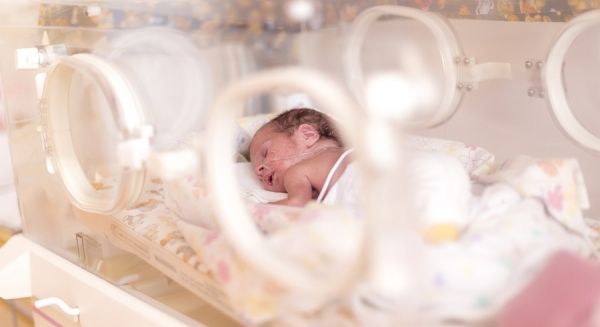If you have been following this blog for some time you would know that discussions about breastfeeding or breast milk are not an uncommon topic here. Literature exits already examining the impact of consumed breast milk on such outcomes as BPD and ROP. Much of our taste though is influenced by our sense of smell. Our olfactory sense therefore might be quite powerful in terms of having a calming effect on the neonate undergoing a painful procedure. This is the exact hypothesis of a recent study looking at the calming effect of the odor of breast milk during heel lance procedures.
The Study
This study out of Turkey by Tasci B is entitled The Calming Effect of Maternal Breast Milk Odor on Term Infant: A Randomized Controlled Trial. The authors performed a randomized trial of 84 infants (42 formula vs 42 mothers own milk) in which infants prior to a heel poke were exposed to the scent of either formula or human milk for a three minute duration. All infants were between 38-42 weeks gestation at birth and weighted between 2500 – 4000g. Two milliliters of either feed were soaked into filter paper and held under the nose for the study. Perhaps the only fault here was that the study could not be double blinded as the authors note that the intervention and assessment were done by the same researcher. The study though did use pain assessments using the NIPS scoring system and in addition to the researcher a nurse also did a simultaneous assessment. From a biological standpoint, as other authors have done before them, salivary cortisol was used to measure stress response of the infant before and after the noxious stimuli. Conditions under which sampling and scoring were done were standardized as much as possible by maintaining the temperature of the room at 23-26 degrees, and doing all heel pokes 1 hour after a feed.
The Results Please
Pain scoring, heart rate and oxygen saturation levels were all better under conditions of sniffing breast milk than formula as shown in Table 2. The oxygen saturation decline in those who sniffed formula was not clinically significant but did reach statistical significance.

Also perhaps not surprisingly the duration of infant crying was much shorter with exposure to the scent of breast milk vs formula.

Finally the stress response biologically appeared to be attenuated with exposure to breast milk.

What now?
The results of the study are quite interesting to me in that prior work has shown that drops of human milk on a pacifier or in the mouth can improve tolerance to pain. This study adds to the research out there by demonstrating just the scent of breast milk can have a positive effect on tolerance of pain. I suppose the next question is how this could be used. I think for most patients who can tolerate drops of milk in the mouth that would be the preferred method as one would get two senses involved in taste and smell. Having said that there are infants who may not be able to tolerate even a few drops of milk due to poor gag or handling of secretions. What this study adds I suppose is that even have a few drops of milk on filter paper can make a difference to tolerance of pain.
Might this be something that people would prefer to use for a baby who is ventilated or on CPAP? Maybe depending on local unit practices and risk tolerance. At the end of the day though what we have learned here is that our sense of smell is a powerful thing and can modulate how we perceive and react to painful stimuli. As I often say, breast milk is a powerful thing.

